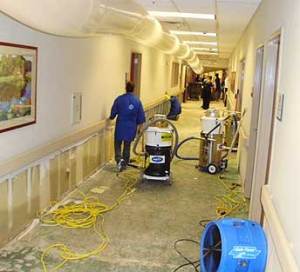“…all guests were evacuated and it took firefighters about 35 minutes to fully contain the flames which had reached into the third story and the attic of the hotel…Because of the drug-making substances that had caused  the hotel explosion, a hazardous-materials crew and the U.S. Drug Enforcement Administration were called in to investigate the illegal drug-making operation…”
the hotel explosion, a hazardous-materials crew and the U.S. Drug Enforcement Administration were called in to investigate the illegal drug-making operation…”
An apparent drug-making operation in a hotel room caused a hotel explosion in San Diego on Wednesday shortly after 11 a.m. The explosion which happened in one of the hotel rooms blew out several windows and three walls, reported San Diego’s 10News on Jan. 30, 2013.
“An explosion apparently caused by an illicit drug-making process blew out walls and windows at a Midway-area hotel Wednesday and set part of it ablaze, leaving a young man gravely burned and two other people less severely hurt, authorities reported.â€
The hotel explosion occurred in a hotel guest room on the second floor at the three-story Heritage Inn on Channel Way, just south of San Diego’s Interstate 8.
The man who was gravely injured during the hotel explosion had apparently lit a cigarette while using a butane spray can to try to extract hashish oil from marijuana. The flame from his lighter ignited the chemical fumes and caused them to detonate powerfully. The man who is in his early 20s suffered life-threatening burns.
Hash oil is made by packing finely ground stems and leaves of marijuana plants in a pipe and pouring butane through it. The liquid typically is then cooked on a stove to separate the butane. Hash oil averages about 15 percent THC, the chief intoxicant in marijuana. A drop or two is about as potent as a marijuana cigarette.
For more:Â http://www.examiner.com/article/illegal-drug-making-hotel-room-causes-hotel-explosion-san-diego










